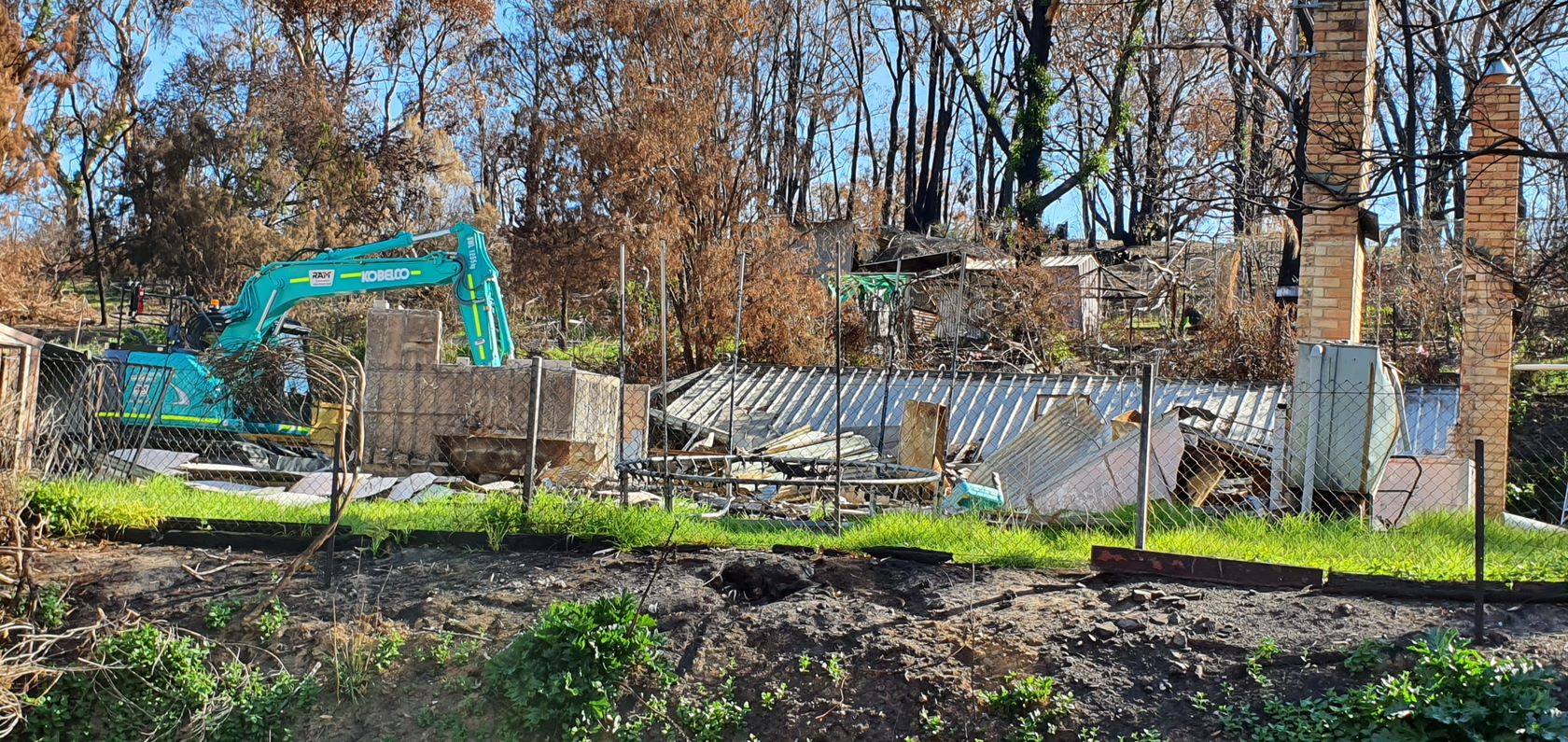Recovery
State Relief and Recovery Infoline: 1800 302 787

Disaster Waste Management
Further information on disaster waste management contact Green Industries SA
Asbestos was a popular building material used widely in Australia until the 1980s. It was banned in 2003 because it can pose a serious health risk.
If your home was constructed before 2003, it may contain components with asbestos fibres. When undisturbed, asbestos does not pose a health hazard. However, when disturbed, asbestos particles will become airborne and dangerous.
If you suspect your property may contain asbestos, the debris must be disposed of safely and securely. Contractors must only enter the site in full personal protective equipment and all debris must be securely bagged and transported in a sealed tray. Not all landfills are equipped to accept and dispose of debris that contains asbestos.
Often the surrounding soil will be scraped to a depth of 10mm. Hard services such as concrete slabs and driveways will not absorb asbestos particles and can be cleaned.
If you are insured, and you have any questions regarding the removal of debris from a property, speak with your insurer.
Some solid and liquid waste is hazardous and is not suitable for the usual collection and disposal methods.
Hazardous waste products include:
- garden chemicals - e.g. pesticides, weedkillers and fertilisers
- insect repellents and rat poison
- cleaners - e.g. oven cleaner, toilet cleaner, bleach, ammonia and furniture polish
- automotive products - e.g. fuel, lubricants and degreasers
- home improvement products - e.g. paints, thinners and adhesives, batteries and pool chlorine.
Hazardous products should not be put out for garbage collection, buried, or allowed to enter sewer or stormwater systems.
Materials like paint, pesticides, herbicides, poly-pipe and fertilisers can be collected from your fire-affected property free of charge.
Do not decant or mix chemicals, and keep them in the original containers. If you know what chemicals are in the container and the label is not readable, please label the container to assist with identification.
Household chemicals and paint can also be disposed of at one of Green Industries SA’s drop-off depots
Permapine and CCA timber
Replacing fences or other structures made from permapine – timber treated with copper chrome arsenate (CCA) – must only be done using safe handling procedures:.
- make sure you wear personal protective equipment, including mask, goggles and gloves
- bag permapine ash in heavy-duty plastic bags and seal each bag
- store the bagged ash with other permapine posts and sleepers
- store permapine ash and permapine timber separately, away from non-treated timber, organics or crops - mixed storage will result in the entire amount being treated as hazardous
- do not chip or mulch permapine timber, burn it or use it as ground cover
- store permapine timber on a waterproof lining - do not leave it in contact with soil
- permapine timber must only be disposed of through a landfill licensed to handle chemical waste.
More information about handling permapine can be found in these fact sheets:
Permapine (CCA timber) waste - storage and management (EPA) (PDF 186 KB).
Landfill sites that can accept permapine timber and ash:
Southern Waste ResourceCo
McLaren Vale depot
Phone: 08 8327 3914
Integrated Waste Services Dublin
Phone: 08 8243 2644
Cleanaway Inkerman Landfill
Prime Road, Inkerman
Phone: 08 8867 1355
Health information
For health and other information related to clean-up and waste management, visit the SA Health 'After a bushfire' webpage

Recovery
https://www.recovery.sa.gov.au/recovery-services/clean-up-and-waste-management
Apr 23, 2024 9:10 pm
